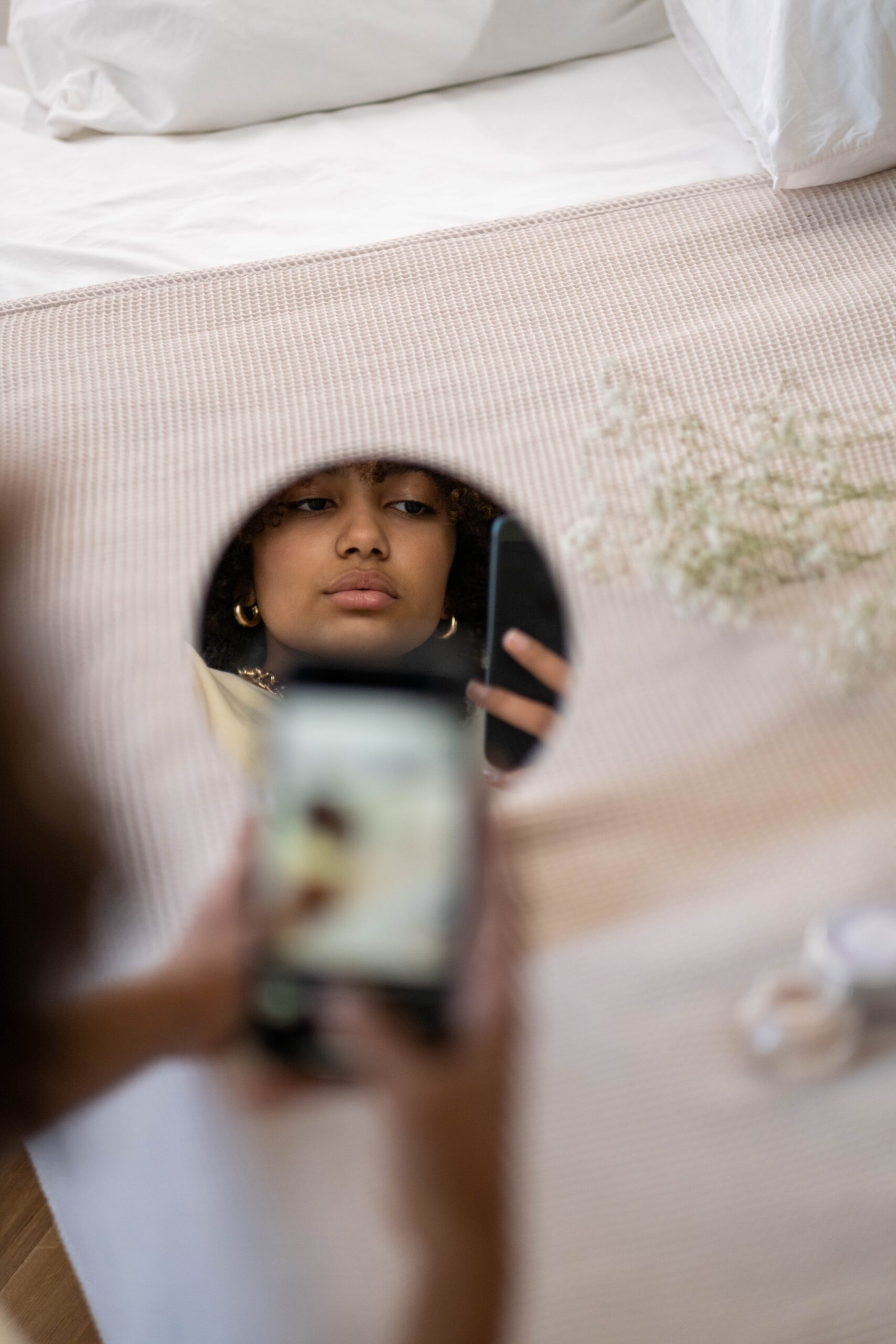Everyone has different Instagram etiquette. There are your friends who post all day every day, filling up their stories with selfies and food pictures. While there are other friends who barely ever post, but seem to be your first view on every upload.
Across the board, however, it’s easy to spot the user who never posts an Instagram story without a beauty filter. From fuller lips and longer lashes to a face full of freckles, it’s pretty easy to spot. The phenomenon when someone can only show their face online when it’s heavily distorted, pegs the question: are Instagram filters disconnecting you from yourself?
For 26-year-old Ashlee Rodgers, filters are all she knows. “I’ve been using face filters since Snapchat in high school and don’t know how to show up online without them,” she said.
The Problem With Instagram Filters
Instagram’s beauty filters tweak your features pretty drastically. Some are sillier, like adding in face tattoos or bold lashes. However, it’s the more subtle ones that invoke worry. The ones that slightly slim the nose, fill out the lips and smooth out the skin. It can be easy to get accustomed to what your face looks like with these modifications, wedging in between how you feel when you look in the mirror. Women between the ages 21 and 32 have reported considering lip fillers in real life after liking how they look with Instagram filters.
Rodgers says she doesn’t remember when the shift to have filters happened. She admitted to taking pictures exclusively through Instagram, using the filter and saving it to her camera roll.
“I hate when my friends take group selfies,” she told 21Ninety. “I always offer to do it because if not, they won’t use a filter and I’ll literally hate the photo.”
With hundreds of filters to scroll through, they’ve become less about being silly and having fun. Filters now seem to be built around illusion and Eurocentric standards of beauty. They blur wrinkles and acne scars, add in blush and thin the face. “I’ve always been proud of myself for never downloading FaceTune but now I’m like, what makes Instagram filters any different?” Rodgers said.
While older users may struggle yet have enough discernment to separate who they are online from who they are in real life, younger girls aren’t as developed. Face dysmorphia has become another factor for parents regulating their teens’ social media usage to consider.
Are Instagram Filters Causing Face Dysmorphia?
Research found that 32 percent of teen girls feel worse about their bodies when using Instagram. One in three adults consider social media to be harmful, and social media users have three times the risk for depression and body image issues. With data like this, it’s hard not to believe filters and image distortion don’t play a critical role. In an anonymous poll, 21Ninety asked other users if they felt like Instagram filters were leading to face dysmorphia. Here’s what they had to say:
I stopped using filters for the sake of my mental health, [and] I only use the funny ones if I can help it.
I refuse to use them and I honestly think they look weird because it’s obvious you don’t look like that. Like, we all know it’s fake.
What defines “face dysmorphia?” Should we also define it as the use of Botox, contour and blush? Could Instagram filters merely be something that makes us happy and takes us to a happy place for a one-minute recording? I just think the world is a horrible place and a little filter don’t kill nobody.
I’ve definitely noticed that I use them more often than I’d like.
I love Instagram filters!
Personally I try not to use them for selfie posts. Only if it’s a Close Friends rant or a fit check that doesn’t focus.
I can go with or without a filter, it depends on the vibes.
They’re fun and should only be fun! I’ve actually made it a point not to use them all the time so I don’t feel crazy when I look in the mirror and see my normal face.
In my opinion, most of the beauty filters are anti-Black.
I can’t do filters. I always catch some dysmorphic feeling and it’s not fair to my perfect face.
If I feel like I can’t post without one I just don’t. When I do it’s because I genuinely want to and think the filter is cute.
I use the Paris filter on every story I post but stay away from filters that change my features.
I stopped using filters because I was starting to not like how my face looked naturally.
Always appreciate a great no-filter pic but I 100% understand why people use them.
I love filters for the days I’m tired and don’t feel like being “camera-ready.”
I don’t use filters anymore. It distorts my view of my own face and it just isn’t worth it.
I simply never use them because they make me look weird, not even cute.
So What Now?
Wherever you land in the argument, simply be honest. If Instagram filters are bleeding into how you relate to yourself in real life, it may be time to reassess your relationship with them. Challenge yourself to go filter-less or on a social media detox altogether, and pour some time into falling in love with yourself. Your quirks and scars are what make you unique and should be celebrated. If you get trapped in self-comparison, remember that underneath everyone’s filtered posts lies a beautifully flawed human.
